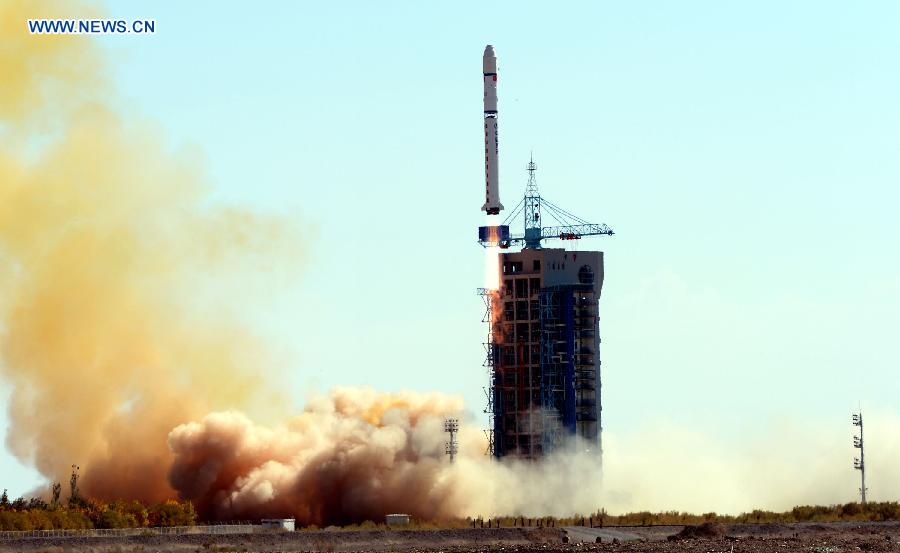BEIJING, Oct. 7 (Xinhua) -- China launched a group of four satellites on Wednesday at noon for commercial remote-sensing services, an important step in the development of remote-sensing space technology.

A Long March-2D carrier rocket carrying the "Jilin-1" satellites blasts off from the launch pad at the Jiuquan Satellite Launch Center in northwest China's Gansu Province, Oct. 7, 2015. China launched the "Jilin-1" satellites, a group of four satellites, on Wednesday at noon for commercial remote-sensing services, an important step in the development of remote-sensing space technology. The "Jilin-1" satellites include one optical remote-sensing satellite, two satellites for video imaging and another for imaging technique testing, according to an announcement from the launch center. (Xinhua/Zhao Peng)
The "Jilin-1" satellites, launched from the Jiuquan Satellite Launch Center in northwest China's Gansu Province, include one optical remote-sensing satellite, two satellites for video imaging and another for imaging technique testing, according to an announcement from the launch center.
All four satellites were developed and produced by Chang Guang Satellite Technology Co., Ltd.
The company will also take charge of commercial operations of the satellites to provide remote-sensing data and relevant products, which may be used for the monitoring, development, and surveying of resources as well as mapping and disaster prevention for domestic and overseas clients, according to the statement.
Wednesday's satellites were carried by a Long March-2D rocket. It is the 213th mission carried out with Long-March-series carrier rockets.
"Satellites are no longer far removed from people's lives," said Xuan Ming, board chairman of the company. "In the near future, more information provided by the satellites will be shared, and more satellite functions will be explored."
Jilin, one of the country's oldest industrial bases, is developing its satellite industry as a new economic driver. Chang Guang Satellite Technology Co., Ltd, sponsored by the Jilin provincial government, the Changchun Institute of Optics, Fine Mechanics and Physics of the Chinese Academy of Sciences and some privately-owned companies, plans to launch 60 satellites by 2020 and 137 by 2030.







